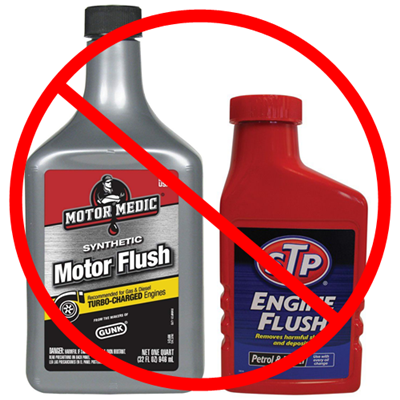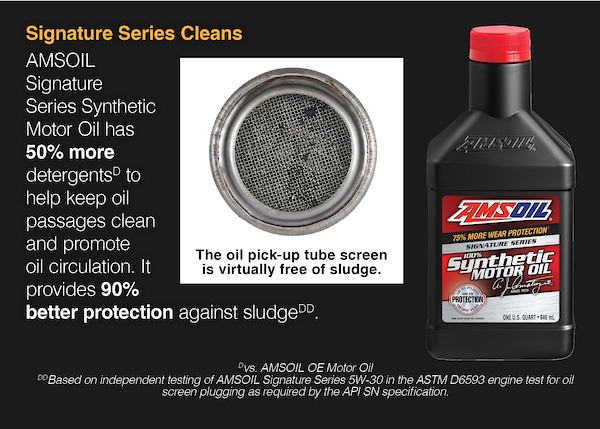Engine oil flushes are not necessary for every oil change. While they can provide benefits such as increasing engine performance and reducing wear and tear, they also carry some risks if not done correctly.
It is important to understand the pros and cons of engine oil flushes and determine if they are necessary for your specific vehicle and situation. Regular oil changes and proper engine maintenance can also help prevent the buildup of sludge and deposits, making engine flushes less necessary.
Ultimately, the decision to use an engine oil flush should be based on individual factors and needs.
The Role Of Engine Oil
The engine oil in a vehicle plays a crucial role in lubricating the various moving parts of the engine. It also helps in cooling the engine by dissipating heat and protecting it from corrosion. Additionally, engine oil helps in sealing the gaps between the piston rings and cylinder walls, preventing leakage of combustion gases. Furthermore, it helps in keeping the engine clean by carrying away dirt and debris.
Functions Of Engine Oil
Engine oil performs several essential functions, including reducing friction between moving parts, preventing corrosion and rust, and maintaining a consistent temperature within the engine. Moreover, it helps in ensuring a proper seal between the piston rings and cylinder walls, thereby minimizing oil leakage and combustion gas loss.
Consequences Of Contaminated Oil
Contaminated engine oil can lead to increased friction and wear on engine components, reduced fuel efficiency, and potential damage to the engine. It can also result in clogging of vital components and may lead to costly repairs if not addressed promptly.
Myths Surrounding Engine Oil Flushes
Engine oil flushes have been the subject of much debate and misinformation. Common misconceptions have led to confusion about the necessity of engine oil flushes. The origins of these myths are often rooted in outdated information and a lack of understanding about modern engine technologies. However, it’s important to separate fact from fiction when it comes to the benefits and drawbacks of engine oil flushes.
Engine Oil Flushes Explained
What is an Engine Oil Flush? An engine oil flush is a procedure in which a specialized cleaning solution is used to remove sludge, deposits, and contaminants from the engine’s oil system. It is typically done before an oil change to ensure that the new oil can effectively lubricate and protect the engine.
How Engine Flushes Work: During an engine oil flush, the cleaning solution is circulated through the engine for a specific period of time. This solution helps break down and dissolve any built-up sludge and deposits. Once the flush is complete, the old oil and cleaning solution are drained, and fresh oil is added.
Is Engine Oil Flush Necessary? While engine oil flushes can be beneficial in certain cases, they are not always necessary. Modern oils are designed to be highly effective in cleaning and protecting the engine. Regular oil changes and proper maintenance can often prevent the need for engine flushes.
Disadvantages of Engine Flushes: Performing an engine flush incorrectly or using aggressive cleaning solutions can dislodge larger chunks of sludge or deposits, which may clog vital components. It is important to follow the manufacturer’s recommendations and consult with a professional before deciding to perform an engine oil flush.

Credit: www.youtube.com
Pros Of Engine Oil Flushes
Regular engine flushes bring multiple benefits to the table. They enhance the overall engine performance and extend its service life. This practice also allows you to reduce engine wear and tear, increase fuel efficiency, and reduce the risks of expensive repairs.
Performing an engine flush carries some risks, especially if not done correctly. Aggressive flushing can dislodge larger chunks of sludge or deposits, which may clog vital components.
Engine flushes are only needed to be used on a periodic basis. Ideally, you’d be changing your oil and taking proper care of the engine such that you wouldn’t have oil sludge building up regularly. You don’t need to use engine flushes with every oil change.
A good engine flush can help loosen deposits and dissolve sludge, helping return your engine to like-new condition. However, in old engines with high miles, sludge may be the only barrier keeping oil from seeping through worn or cracked seals. Removing the sludge exposes the seals for what they really are – junk.
Cons And Risks Of Engine Oil Flushes
Engine oil flushes have become a common practice among car owners to keep their engines running smoothly. However, there are several risks and potential cons associated with this process. One of the most significant risks is the potential for engine damage. Aggressive flushing can dislodge large chunks of sludge or deposits, which may clog vital components and cause serious damage.
Another important aspect to consider is when flushes may do harm. In old engines with high miles, sludge may be the only barrier keeping oil from seeping through worn or cracked seals. Removing the sludge exposes the seals for what they really are – junk. Additionally, modern oils don’t require flushing, so it may not be necessary to perform engine oil flushes regularly.
It’s important to consider the potential risks before deciding whether to flush your engine oil. While regular engine flushes can bring multiple benefits to the table, they should only be used on a periodic basis and done correctly to avoid any potential damage.
Understanding Modern Engine Oils
Engine oil flushes are not necessary for modern engines. While they may help to remove deposits and sludge, they also carry the risk of dislodging larger chunks that can clog vital components. Regular oil changes and proper engine care are usually sufficient to maintain engine performance and longevity.
Modern engine oils have come a long way in recent years, thanks to advancements in oil technology. These oils are designed to provide better lubrication and protect engines from wear and tear. As a result, many experts argue that engine oil flushes are no longer necessary for modern engines. In fact, flushing the engine oil can sometimes do more harm than good, especially if not done correctly. Aggressive flushing can dislodge larger chunks of sludge or deposits, which may clog vital components. However, if your engine is old or has high miles, a good engine flush can help loosen deposits and dissolve sludge, helping return your engine to like-new condition. It is recommended to use engine flushes on a periodic basis, not with every oil change.When To Consider An Engine Oil Flush
Regular engine flushes bring multiple benefits to the table. They enhance the overall engine performance and extend its service life. This practice also allows you to reduce engine wear and tear, increase fuel efficiency, and reduce the risks of expensive repairs. Engine flushes are only needed to be used on a periodic basis. Ideally, you’d be changing your oil and taking proper care of the engine such that you wouldn’t have oil sludge building up regularly. You don’t need to use engine flushes with every oil change.
Potential Risks: Performing an engine flush carries some risks, especially if not done correctly. Aggressive flushing can dislodge larger chunks of sludge or deposits, which may clog vital components. A good engine flush can help loosen deposits and dissolve sludge, helping return your engine to like-new condition. However, in old engines with high miles, sludge may be the only barrier keeping oil from seeping through worn or cracked seals. Removing the sludge exposes the seals for what they really are – junk.

Credit: mygarageairdrie.ca
Alternatives To Engine Oil Flushes
Regular engine flushes bring multiple benefits to the table. They enhance the overall engine performance and extend its service life. This practice also allows you to reduce engine wear and tear, increase fuel efficiency, and reduce the risks of expensive repairs.
Performing an engine flush carries some risks, especially if not done correctly. Aggressive flushing can dislodge larger chunks of sludge or deposits, which may clog vital components. However, in old engines with high miles, sludge may be the only barrier keeping oil from seeping through worn or cracked seals. Removing the sludge exposes the seals for what they really are – junk.
Engine flushes are only needed to be used on a periodic basis. Ideally, you’d be changing your oil and taking proper care of the engine such that you wouldn’t have oil sludge building up regularly. You don’t need to use engine flushes with every oil change.
Expert Opinions On Engine Oil Flushes
Industry experts and mechanics have varying opinions on the necessity of engine oil flushes. Some argue that regular engine flushes bring multiple benefits to the table. They enhance the overall engine performance and extend its service life, reduce engine wear and tear, increase fuel efficiency, and minimize the risks of expensive repairs. However, others caution that aggressive flushing can dislodge larger chunks of sludge or deposits, which may clog vital components and expose worn or cracked seals. Despite these differing viewpoints, the general industry recommendation is that engine flushes are only needed on a periodic basis and not with every oil change. It is essential to weigh the potential advantages and disadvantages before deciding whether an engine oil flush is necessary for your vehicle.

Credit: blog.amsoil.com
Making The Decision: To Flush Or Not To Flush
Engine oil flushes can provide benefits such as enhancing engine performance, extending service life, and increasing fuel efficiency. However, it’s important to assess your vehicle’s needs and consider the potential risks. Aggressive flushing can dislodge large sludge chunks, leading to clogged vital components. Ideally, engine flushes should be used periodically, not with every oil change. In older high-mileage engines, sludge may be the barrier preventing oil seepage through worn seals. Removing the sludge can expose these worn seals, leading to potential issues. It’s crucial to weigh the benefits against the potential risks and make an informed decision based on your vehicle’s specific situation.
Frequently Asked Questions
Is Engine Oil Flush Worth It?
Regular engine oil flushes can enhance engine performance, extend its lifespan, and reduce wear and tear. This maintenance practice also improves fuel efficiency and lowers the risk of costly repairs. Engine flushes are not required with every oil change, but can be beneficial when done periodically.
Is Engine Oil Flush Required?
An engine oil flush is not always necessary and should only be done on a periodic basis, not with every oil change. Aggressive flushing can also dislodge chunks of sludge or deposits that may clog vital components, causing potential risks.
However, regular engine flushes can enhance overall engine performance and extend its service life, reducing engine wear and tear, increasing fuel efficiency, and reducing the risk of expensive repairs.
What Are The Disadvantages Of Engine Flush?
Performing an engine flush carries some risks, especially if not done correctly. Aggressive flushing can dislodge larger chunks of sludge or deposits, which may clog vital components. Additionally, in old engines with high miles, removing sludge may expose worn or cracked seals, causing oil leaks.
Therefore, engine flushes should be used on a periodic basis and only when necessary.
Why Not To Flush The Engine Oil In Your Car?
Flushing engine oil can dislodge sludge, potentially causing clogs and exposing worn seals, leading to leaks.
Conclusion
Regular engine flushes can benefit overall engine performance and extend its service life. This practice reduces wear and tear, increases fuel efficiency, and minimizes the risk of costly repairs. While engine flushes are not necessary with every oil change, they are recommended on a periodic basis to maintain optimal engine health.


